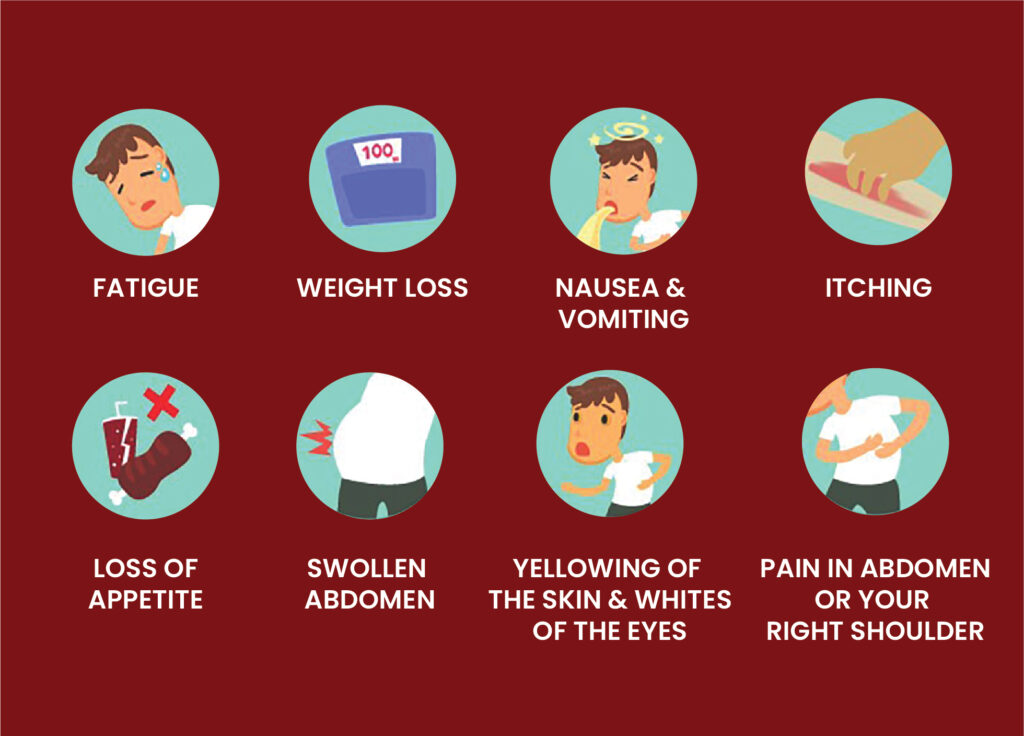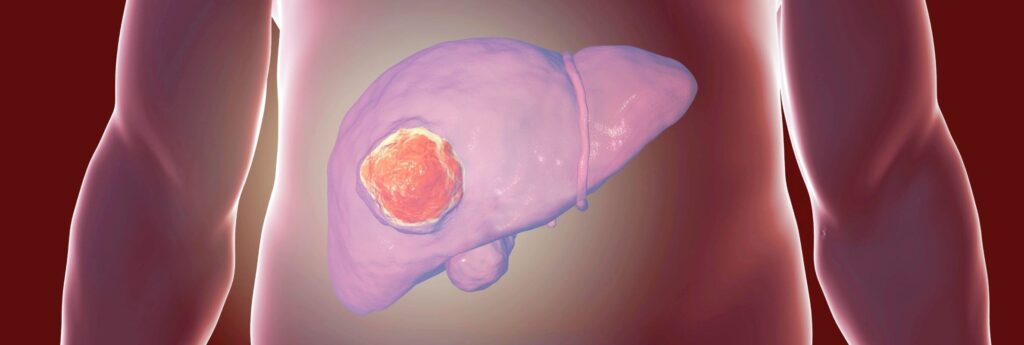Liver Cancer Symptoms, Treatment & Care
What Is Liver Cancer?
The liver is a football-sized organ located in the upper right abdomen, beneath the diaphragm and above the stomach. Liver cancer occurs when abnormal cells in the liver grow uncontrollably, forming tumours that affect liver function. Detecting liver cancer symptoms early can improve treatment outcomes and survival rates.

Signs & Symptoms of Liver Cancer
Many people with early-stage liver cancer may not notice any symptoms. However, as the disease progresses, common liver cancer symptoms include:
- Unexplained weight loss
- Loss of appetite
- Persistent nausea or vomiting
- Abdominal swelling or pain in the upper right side
- Enlarged liver or spleen
- Yellowing of the skin and eyes (jaundice)
- Fatigue and weakness
- Dark urine and pale stools


Risk Factors for Liver Cancer
Certain factors increase the risk of developing liver cancer, including:
- Chronic hepatitis B or C infection
- Cirrhosis caused by alcohol abuse or fatty liver disease
- Family history of liver cancer
- Long-term exposure to aflatoxins (toxins in some foods)
- Obesity and type 2 diabetes
Diagnosis & Staging of Liver Cancer
To detect liver cancer, doctors use a combination of:
- Imaging tests (ultrasound, CT scan, MRI)
- Blood tests (checking alpha-fetoprotein levels)
- Biopsy (removing liver tissue for analysis)
Once confirmed, liver cancer is staged to determine how far it has spread and to plan the most effective treatment.
Treatment Options for Liver Cancer
Treatment for liver cancer depends on the stage, liver health, and overall patient condition. Options may include:
- Surgery – Removing the tumor or performing a liver transplant
- Ablation therapies – Destroying cancer cells using heat, cold, or alcohol injections
- Embolization – Blocking blood supply to the tumor
- Targeted therapy & immunotherapy – Using drugs to attack cancer cells or boost immune response
- Radiation therapy – Controlling tumor growth and symptoms
Prevention & Early Detection
While liver cancer cannot always be prevented, steps can lower the risk:
FAQs About Liver Cancer
The earliest liver cancer symptoms may include unexplained weight loss, constant fatigue, loss of appetite, and discomfort or pain in the upper right abdomen.
Yes. When detected early, liver cancer can sometimes be cured with surgery or a liver transplant. In advanced cases, treatments such as targeted therapy, immunotherapy, or radiation can help manage the disease.
The speed of progression varies depending on the type of liver cancer and a patient’s overall health. Regular check-ups are important for individuals showing liver cancer symptons or with high-risk factors.
Liver cancer is not directly inherited, but a family history combined with conditions like chronic hepatitis or cirrhosis can increase risk.
Yes. Healthy lifestyle choices such as avoiding alcohol, maintaining a balanced diet, exercising, and treating liver-related conditions can lower the risk of developing liver cancer symptoms.


